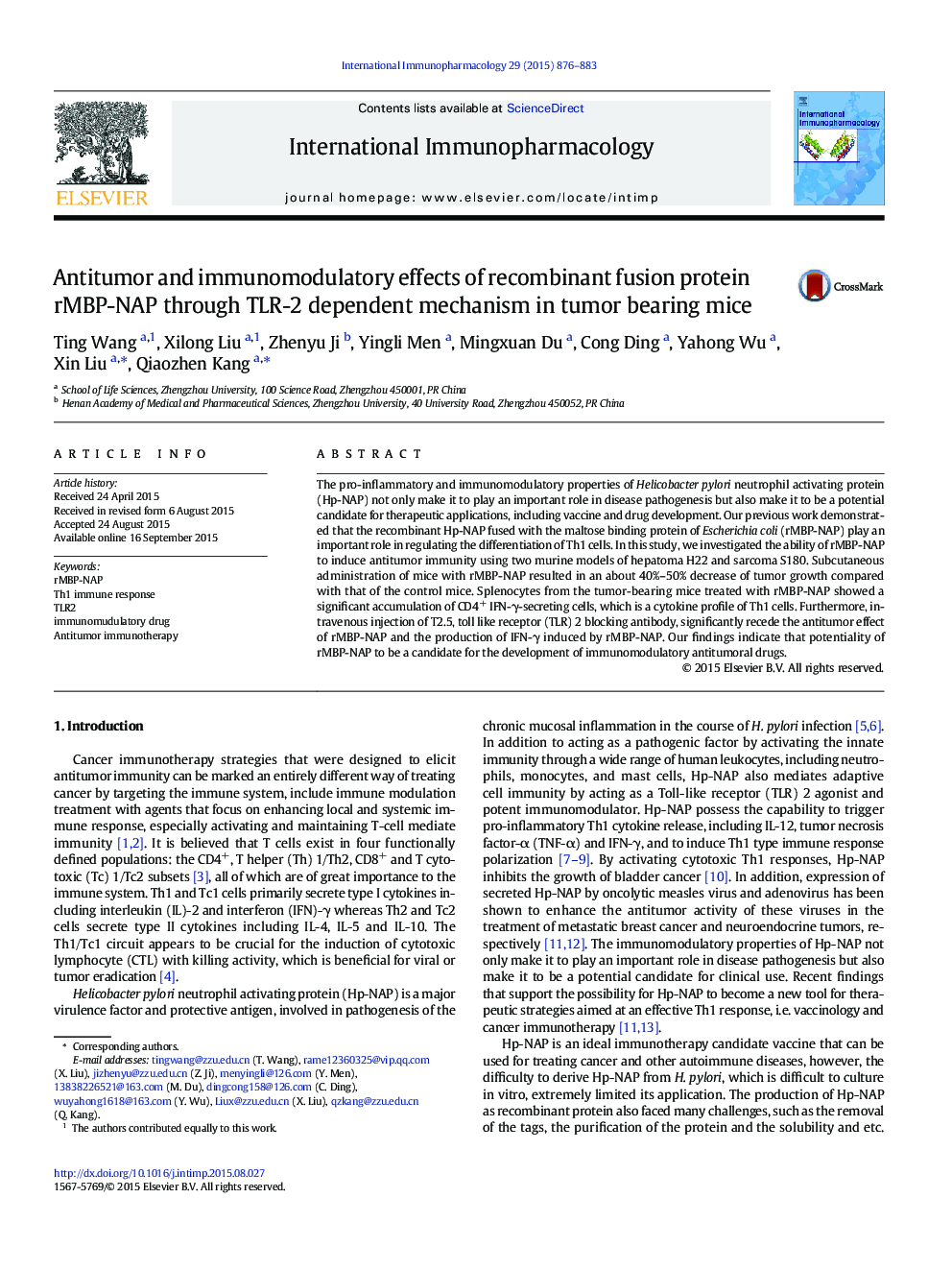| Article ID | Journal | Published Year | Pages | File Type |
|---|---|---|---|---|
| 5832317 | International Immunopharmacology | 2015 | 8 Pages |
â¢rMBP-NAP can activate the systemic immune response, and enhance the activities of activated Th1 cells.â¢rMBP-NAP can elicit a significant antitumor effect by inducing Th1 immune response.â¢Antitumor and immunomodulatory activities of rMBP-NAP depend on a Toll like receptor 2-triggered pathway.
The pro-inflammatory and immunomodulatory properties of Helicobacter pylori neutrophil activating protein (Hp-NAP) not only make it to play an important role in disease pathogenesis but also make it to be a potential candidate for therapeutic applications, including vaccine and drug development. Our previous work demonstrated that the recombinant Hp-NAP fused with the maltose binding protein of Escherichia coli (rMBP-NAP) play an important role in regulating the differentiation of Th1 cells. In this study, we investigated the ability of rMBP-NAP to induce antitumor immunity using two murine models of hepatoma H22 and sarcoma S180. Subcutaneous administration of mice with rMBP-NAP resulted in an about 40%-50% decrease of tumor growth compared with that of the control mice. Splenocytes from the tumor-bearing mice treated with rMBP-NAP showed a significant accumulation of CD4+ IFN-γ-secreting cells, which is a cytokine profile of Th1 cells. Furthermore, intravenous injection of T2.5, toll like receptor (TLR) 2 blocking antibody, significantly recede the antitumor effect of rMBP-NAP and the production of IFN-γ induced by rMBP-NAP. Our findings indicate that potentiality of rMBP-NAP to be a candidate for the development of immunomodulatory antitumoral drugs.
